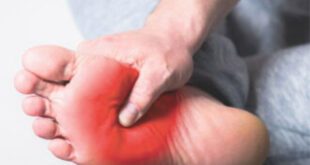 When we think of taking a vacation, we typically visualize relaxation, and we look forward to a peaceful experience. After all, vacations are a time to get away from our stress-filled lives and visit family, friends, or enjoy quiet time on the beach basking in the sun. In reality, these things hold true, but there is one blinding caveat that we all seem to gloss over—travelling!
When we think of taking a vacation, we typically visualize relaxation, and we look forward to a peaceful experience. After all, vacations are a time to get away from our stress-filled lives and visit family, friends, or enjoy quiet time on the beach basking in the sun. In reality, these things hold true, but there is one blinding caveat that we all seem to gloss over—travelling!
Hauling luggage, parking the car at the airport, waiting in the security line, worrying about catching our connecting flights, or traveling in the car for long distance in heavy traffic are all unpleasant experiences that we encounter while trying to get to our favorite destination.
Even the healthiest individuals find that traveling is nerve-racking, so what are the precautions for travelers that have heart issues? Our myocardial oxygen demand increases during air travel due to the abnormal cabin environment. The cabin pressure decreases as the plane rises, and the air becomes extremely dry which can cause issues with breathing. The cabin pressure can also cause problems with arterial blood flow, which can negatively affect individuals that have cardiovascular issues. The complications could lead to clotting or myocardial infarction. Additionally, patients with known CHF (Chronic Heart Failure), and pulmonary edema may not be able to fly because of breathlessness and congestion in their lungs.
One of the most common travel concerns in people with known heart disease, as well as healthy individuals, are DVT’s, or deep vein thrombosis. DVT’s can occur in travelers in the air, railways or by road.
Both chronic and acute symptoms could be a sign or lead to a DVT (deep vein thrombosis). DVTs are life-threatening and should be treated immediately. Deep vein thrombosis is a blood clot in the veins that are formed deep in within the legs. Vascular malformations, pelvic tumors or sitting for extended periods of time are some of the risk factors that go along with DVTs. Every year, over 2 million people are affected by deep vein thrombosis, and sadly over 200,000 of these cases end in death.
To alleviate your chances of DVT, it’s imperative to try and move your toes, ankles and do calf raises in your seat. If you can get up and walk around, that’s an important method to keep your blood flowing properly back to your heart. If your trip is over 3 hours, or if you have venous insufficiency, wearing compression stockings is critical to keeping your vascular structures healthy.
If you have any health concerns or have had heart or peripheral vascular procedures, you should consult with your cardiologist for a “Fitness to Fly or Travel” assessment.
To find out more information on the Dr. Vallabhan, your local specialists in the diseases of the heart, veins, and arteries, please call (352) 750-2040 or visit them online at, DrvCardio.com
This information is for educational purposes only and is not intended to replace the advice of your doctor or health care provider. We encourage you to discuss with your doctor any questions or concerns you may have.
Dr. Vallabhan
352-750-2040
www.drvcardio.com
Rolling Oaks Professional Park
929 N. US Highway 441, Suite 201
Lady Lake, FL 32159
Check Also
Revolutionizing Neuropathy Treatment: The Summus Laser Approach at LaserLab
Neuropathy, a condition affecting an estimated 42.5 million Americans, can significantly impact one’s quality of …
 Central Florida Health and Wellness Magazine Health and Wellness Articles of the Villages
Central Florida Health and Wellness Magazine Health and Wellness Articles of the Villages



